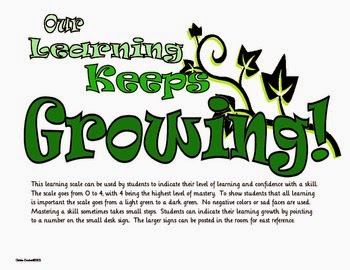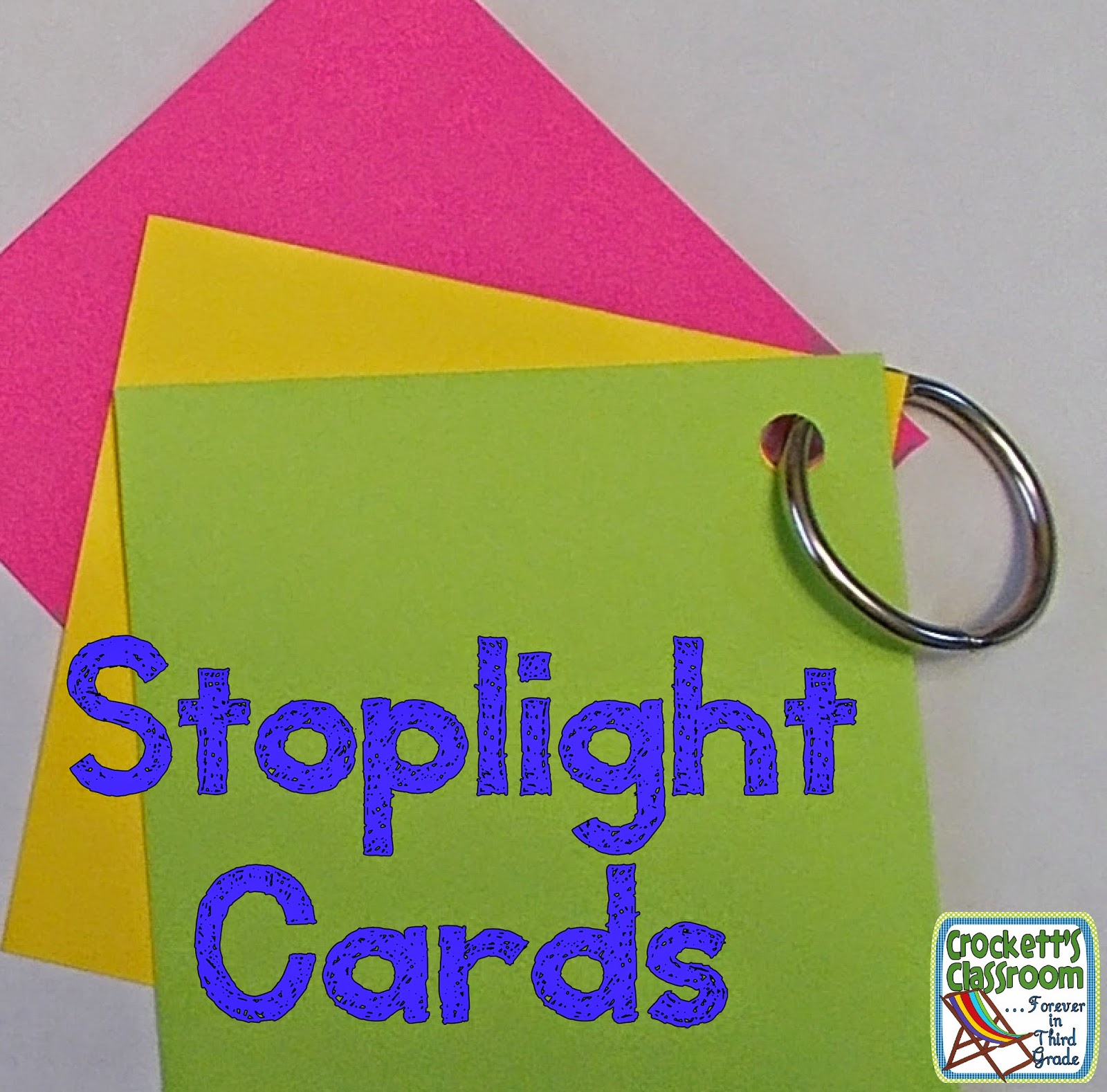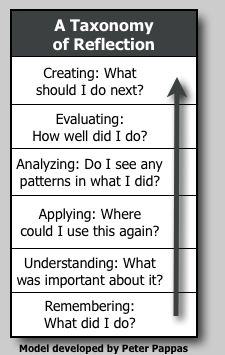Most teachers agree that having students reflect upon their learning is important. But how do you incorporate this valuable reflection time into an already busy day. I've gathered a few ideas of how you can give your students time for meaningful self-reflections and not take up too much of your instruction time.
Hand
Signals
I've
found hand signals the quickest and easiest way to give student time for a quick reflect on their learning.
4 fingers mean . . . I know everything that was taught so well I can teach it to others.
3 fingers mean . . . I know and can do
everything that was taught without mistakes.
2 fingers mean . . . I can do most of the
things that were taught but need help with the harder parts.
1
finger means . . .I don’t know what was taught and can’t do any of it.
If you'd like to keep the reflection a little more private you can have a reflection strip on each desk. Students can point to their number. You can see their reflection pretty quickly as you walk around the room.
This
number scale is available for free in my TPT store. Click here to download it to use in your
classroom.
Another
simple self assessment that gets students thinking about their learning are
stop light cards. Each student can have
a set of cards, one red, one yellow and one green. Through out the lesson a teacher can ask a
question about student understanding and the students can display the
appropriate card.
Green: I got it! Yellow:
I almost have it. Red: I don’t understand
You
can use 3 Stoplight Cards (green, yellow and red) held together with a book
ring. Students flip to the color to show
their understanding of a skill or concept and hold it up for the teacher to
see.
Or you can print and use these Stoplight Desk Tents. Simply print cut, fold, and tape. Now you have something to set on each desk. Students turn it to show what they think of the skill or objective. (Click on the picture to download this free printable.)
**June 2020 I updated these desk tents. Now you have a choice between the full color or the ink-saving style. I also included two editable slides so you can change the colors or the text to match your need. The new file is a PowerPoint, so make sure you have that program.
(If you prefer a noneditable PDF version, email me at debbie@crockettsclassroom and I'll add a link to this post.)
Written Reflections
While
not as quick as the first few ideas mentioned in this blog post, written
reflections are also a valuable way for students to spend thinking about
their learning. You can have them write in their reading, writing or math journal. Or write a reflection at the end of the week, looking back at the entire week of learning.
While researching for ideas on written reflections I came across an excellent website, Copy/Paste, by Peter Pappas. He's come up with reflections levels based on Bloom's Taxonomy of Thinking Skills. I love the way these reflections make students go deeper and deeper about their learning! You can post these questions and have students answer each question at the end of a lesson. Since this reflection would take longer I wouldn't have students do this type of reflection more than once a week.























2 comments
The need for kitchen remodeling has increased over the years, with people wanting to get more out of their kitchens. The Kitchen Remodeling Services in California present the quality work. Kitchen designers are working on solutions to make kitchens more practical and efficient, while also designing them in ways that make them look better.
Reflecting on learning is essential for students' development. To fit this into a busy schedule, try short, concentrated activities like exit tickets or quick journaling sessions. These strategies offer dissertation help london while allowing students to ponder without sacrificing teaching time.
Post a Comment